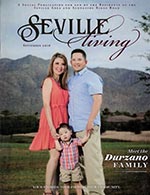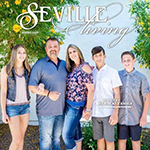Recently a dear friend was in a near catastrophic car accident. His wife, thank goodness, was relatively unharmed but for a few cuts from broken glass. He however, was not as fortunate. To avert a head on collision due to an individual who apparently was in too much of a rush, he swerved to the right and took the full brunt of the force in the driver's side, averting a head on in a millisecond. He suffered numerous broken ribs and will eventually be The Bionic Man, needing two joint replacements. We thank goodness that he survived, and his quick thinking saved his wife, no doubt. It will be a long recovery, and we think of him daily. He is slowly on the mend and will be back to his wonderful self in due time.
While the accident was not his fault in any way, the insurance companies will now go to work sorting the whole thing out, reviewing accident reports, eyewitness statements, interviews with those involved, taking into account the time of day, weather, and any imaginable inclusion of fact to determine who was at fault, and who's insurance company will eventually fund the cost of the damage to the cars and the massive expense, in this case, of the medical bills. Thank goodness we have car insurance for this sort of thing; but what happens if our coverage is insufficient to cover the expenses?
Paying for the family insurance needs are an expensive and burdensome task. Most of our insurance needs fall into two categories: the first is Life and Health, the second being Property and Causality. In the first category is (just as it sounds) life and health insurance including medical, hospitalization, dental and vision. Also includible in this group are disability and Medicare supplement. The second category, Property and Casualty, protects the things- you own: your house, car, and boat...your stuff. Wrapped up in that policy is medical insurance, so if your medical issue is related to a car accident, as in the above situation, your car insurance will pay out instead of your health insurance company. Confused? But, as they say in the late night infomercials, "But wait...there's more!" When you took out your car insurance, you were advised by your property and casualty agent as to the appropriate coverage. Most states have mandatory minimums, and it is up to the policy owner if they would like to add additional coverage...at additional cost. Regardless of the coverage you select though, we are all faced with a difficult question: what happens in a case where the coverage is not enough to cover the cost of property and bodily injury, or in the case of a lawsuit that finds you liable, and exceeds your maximum coverage? Meet the Personal Umbrella Policy, or known as its acronym, the PUP.
The PUP is a secondary insurance, and is used to cover you for any claims in excess if your primary insurance, such as your car or homeowners. It does not pay out until your primary coverage has reached its maximum and has paid out the full amount of your coverage. It is relatively inexpensive (usually a few hundred dollars a year for a $1,000,000 policy) and you have your choice of how much coverage above the million should would feel secure with. The reason it is so inexpensive is the chances of you putting in a claim are very low. Your primary coverage pays out first and must be exhausted before the PUP pays out. The chances are slim you will ever need it, but in the case of a catastrophic claim or lawsuit where it is found you were at fault and the judgment exceeds your primary coverage, you may find the opposing party tries to take your personal assets: savings and investment accounts, retirement plan assets, even your home. Your PUP will prevent that from happening as long as the PUP coverage plus your primary coverage is within the amount you are found to pay. Chances are your personal assets will be safe- much safer than just your primary coverage. The "U" stands for "umbrella" because it covers you from any claims regardless of the incident, according to the terms of the plan. Speak with your agent and see if you have this relatively inexpensive coverage, and what is appropriate for you. Just like a good umbrella it should protect you from whatever comes raining down.








